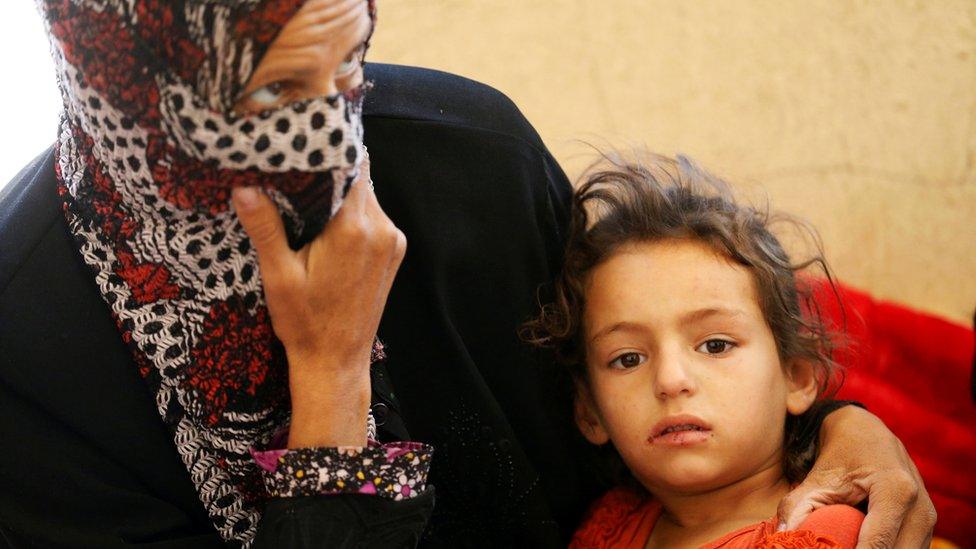Syria conflict: Life under siege in rebel-held Aleppo
- Published
An underground school is helping children keep up with their studies
Aleppo was once a place of culture and commerce, with a jewel of an old city that was on Unesco's list of world heritage sites.
Now, the five-year civil war that rages in Syria has left much of it destroyed and divided roughly in two, with President Bashar al-Assad's forces controlling the west and the rebels the east.
A month ago, government forces re-imposed a siege on the east, and launched an all-out assault to take full control of the city, accompanied by an intense and sustained aerial bombardment.
Activists say the offensive has left hundreds of civilians dead, but the government and its ally Russia have denied targeting them and blamed rebel fighters for operating in residential areas.
But what about the 275,000 people who are trapped there? Where are they getting their food from? Do they have enough water and medicine?

The quality of daily life depends on where you live
There is no single group in charge in eastern Aleppo - it is divided between mainstream rebels backed by the US and its allies; the al-Qaeda-linked jihadist group Jabhat Fateh al-Sham, formerly known as al-Nusra Front; and Kurdish forces, who say they support neither the government or the opposition.
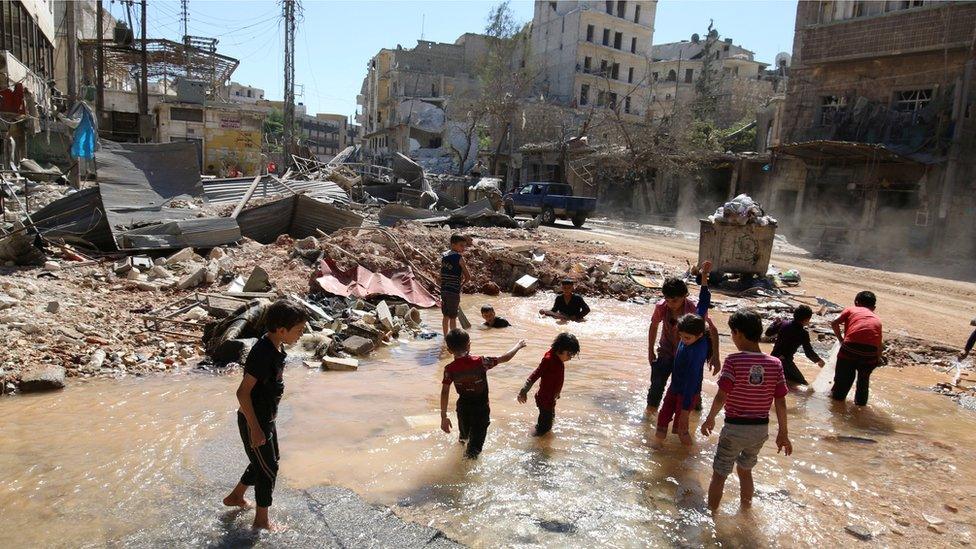
Children played in the water after an air strike hit a pipe
In the Kurdish-controlled district of Sheikh Maqsoud, markets are well stocked and prices are stable, according to the Reach Initiative, external, which is in touch with people on the ground to gather regular humanitarian reports.
One road out of Sheikh Maqsoud has opened up in the daytime, allowing people to get out and goods to get in. But the district is surrounded by checkpoints, meaning people from the other areas under siege cannot get in and out easily.

In other parts of eastern Aleppo, the situation is more urgent. Generators are running out of fuel, meaning electric power is sporadic, and some air raid shelters - where residents may spend hours or wait overnight for bombing to stop - are not wired with electric light at all.

Food and water have become weapons of war
Humanitarian aid agencies have been unable to get into eastern Aleppo since the siege resumed on 4 September.
Both the United Nations and the International Committee of the Red Cross have been calling for humanitarian corridors to be opened up since then, but so far those calls have been ignored.
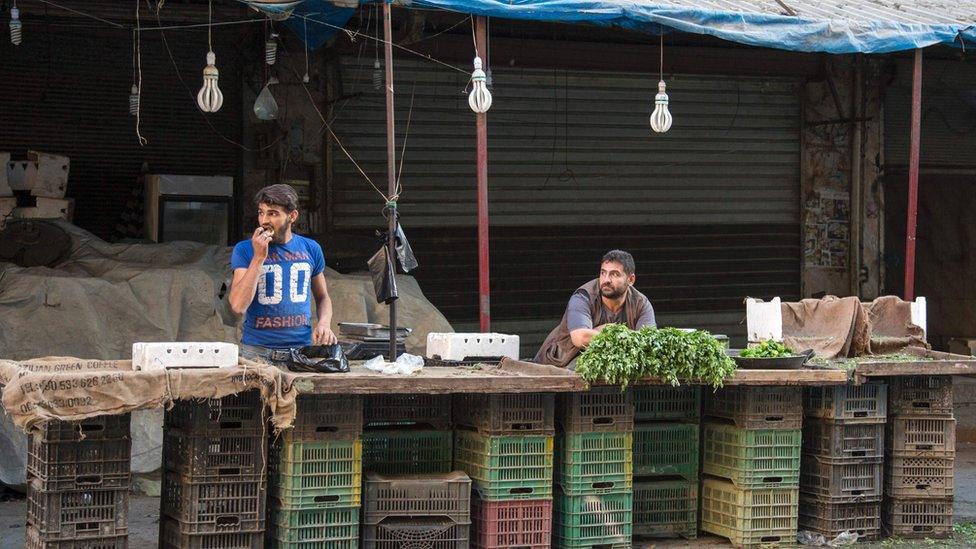
That said, charities are still in contact with people who live there.
Reach says some markets are still up and running in parts of Aleppo under siege, but for key foodstuffs like eggs, flour, vegetables, fruit, chicken and cooking oil, whether you will get them or not is touch-and-go.
In three districts - Qadi Askar, Masakin Hanano and Tariq al-Bab - markets have run out of flour completely. Reach says some people are rationing their last pieces of dried bread and tubes of tomato paste, while others are bartering what is left in their cupboards.
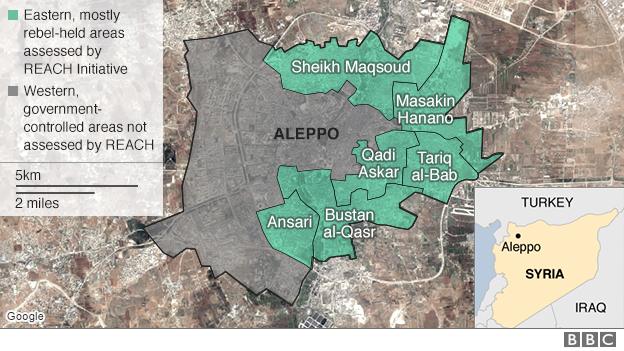
For food that you can get, the price is hugely inflated.
Before the conflict, seven pieces of flatbread cost 15 Syrian pounds. Now, it comes in packets of six pieces, costing 451 Syrian pounds on average (£1.66, $2.12) - expensive in a city under siege, where many ways of earning money have disappeared.
Water, too, has become a weapon in the war as government forces attempt to make the rebels and civilians in eastern Aleppo surrender.
Pumping stations have been damaged in the bombing and most of the city - including parts of the government-held west where some 1.2 million people live - has no running water coming out of the taps.
Aleppo: Key battleground in Syria's civil war
People are buying water from wells and privately-owned water tankers, and carrying it home in buckets. Many have reported that it tastes bad, and there is no guarantee that it is free of disease.
It is hard to say whether anyone has died of hunger in the siege because with aid agencies unable to get inside, they cannot accurately diagnose the level of malnutrition.
But Pablo Marco from the charity Medecins Sans Frontieres (MSF) said: "The siege is pushing people towards starvation."

There are hardly any doctors left
Many doctors have fled the city as refugees or been killed in the fighting, and there are just 30 doctors remaining in eastern Aleppo.
Using the UN's estimate for the number of people trapped there - 275,000 - that means there is roughly one doctor for every 9,100 people.
This in a place that is being bombed every day - at least 376 people were killed and 1,266 wounded in the first two weeks of the latest government's assault, according to the UN.
The places where doctors work have been repeatedly targeted by government and Russian air strikes, activists and charities say. The UN says six hospitals are still operating, although they are only partially functional.
Two hospitals have been almost totally destroyed in the past two weeks, and three doctors and two nurses killed.
Mr Marco from MSF painted a troubling picture of the state of healthcare in the area.
He said: "The few remaining hospitals are collapsing under a flow of hundreds of wounded lying in agony on the floors of wards and corridors.
The doctors 'breaking the siege' in Aleppo via Skype
"Doctors are performing brain and abdominal surgeries to the victims of bombing on the floors of the emergency rooms, for lack of available operating theatres."
But some creative innovation helps save lives. Some doctors are using Skype to get help carrying out operations that they personally have never done before.
Other medical facts of life in besieged Aleppo:
Because of the siege and the violence, 600 patients are in need of medical treatment that cannot be provided, while 200 people are waiting for emergency medical evacuations that cannot take place
Some ambulances have been destroyed in attacks and a shortage of fuel means there are fewer private cars on the road, making it harder to get patients to a place where they can be treated
Doctors are short of blood for blood transfusions
Doctors also say they have been forced to recycle syringes, needles and bandages, operate on patients without anaesthetic and use salted water instead of medical saline to sterilise wounds
And it is not just in the aftermath of air strikes that people's health and lives are at risk. Medications for heart disease, diabetes and other long-term conditions are running short too.
Zulfiye Kazim of Reach Initiative said long-term medical supplies are frequently reported as being the most urgent. She said: "They're not something that can be left out in favour of conflict-related medications. They are actually prioritised."
Women's hygiene products like sanitary pads are not easily available in besieged Aleppo, except in the Kurdish-controlled area. Women and girls who are on their periods are forced to use old rags instead of disposable sanitary pads.
As water is not guaranteed to be clean, doing so means they could get infections.

Tens of thousands of people have had to leave their homes
In August, the UN Children's Fund (Unicef) estimated that 35,000 people were internally displaced inside eastern Aleppo, some of whom were in official shelters run in abandoned buildings, others staying with family or friends, and still others sleeping outdoors in parks and streets.
Drone footage shows children playing football among Aleppo's ruins
Not many will have been able to leave since then - and it is likely that the number of people not sleeping in their own homes has gone up. And even those who are still at home know they are not safe.
Ms Kazim told the BBC: "People are saying there is no safe place to go. There may be many who are staying in places that they don't consider to be adequate but they're staying anyway."

What does back-to-school look like in a war zone?
Nearly half the people who live in besieged Aleppo are under the age of 18. Many of their schools have closed or moved. Some of the buildings have been bombed, while others are being used as shelters for displaced people, or fighters in the conflict are using them for military purposes.
It might be difficult to imagine any child going back to school when bombs are falling.
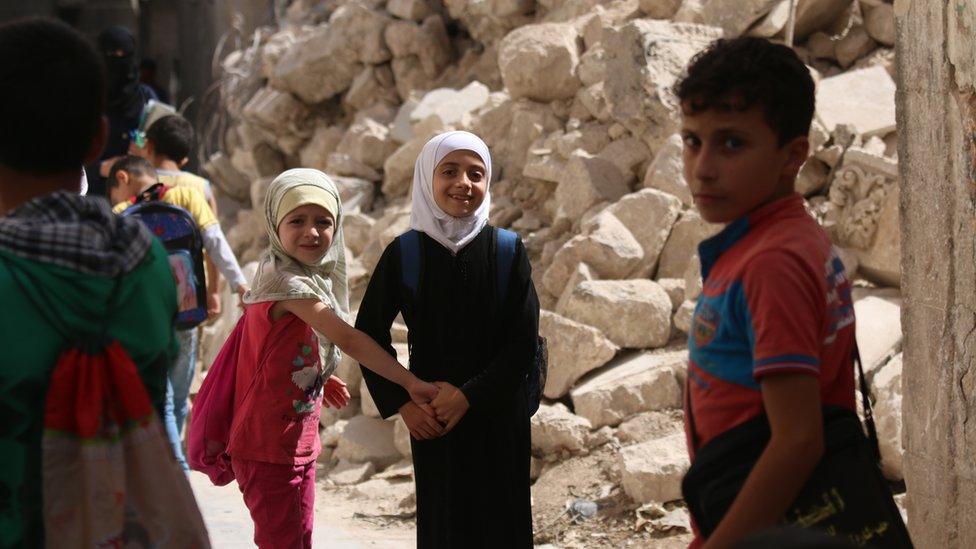
But if not at school, the children who are in Aleppo are still at risk: playing in the street, at home or even swimming in bomb craters. And when schools re-opened last week, some children were there.
One girl, Judy, walks through rubble to get to class. She told Unicef: "I go to school every day except for the times when I hear the planes."
Children in Aleppo face death from Syrian and Russian bombing
Teacher Wissam Zarqa works at a school in a besieged area. He told the BBC that the number of students was "less than usual" but said parents did not always take the first week of term seriously, and that numbers might pick up as pupils learned where the school's new building was.
A supporter of the rebels, Mr Zarqa said: "After all these crimes we will feel ashamed if we just run away. The next generation should have a better country to live in."
Why are Aleppo's children so badly affected?
Reporting by Nalina Eggert
- Published2 October 2016
- Published8 August 2016
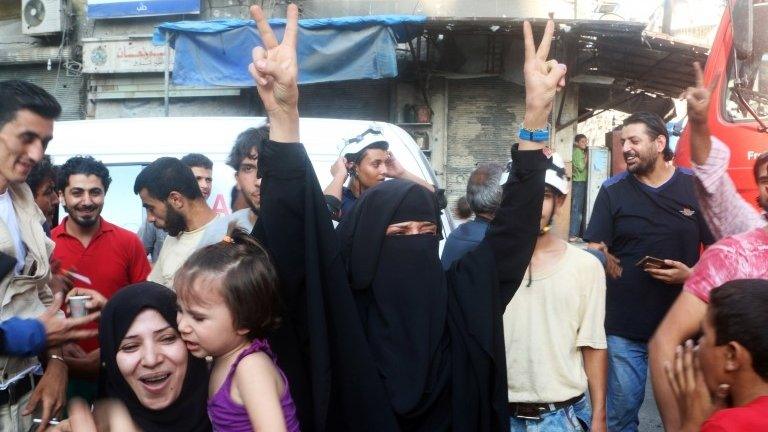
- Published13 September 2016
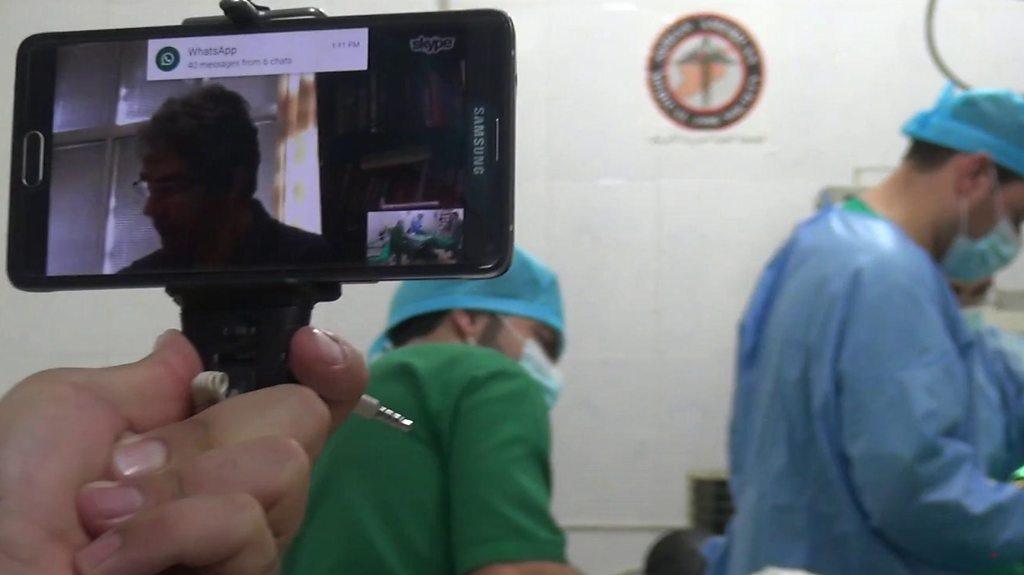
- Published26 September 2016
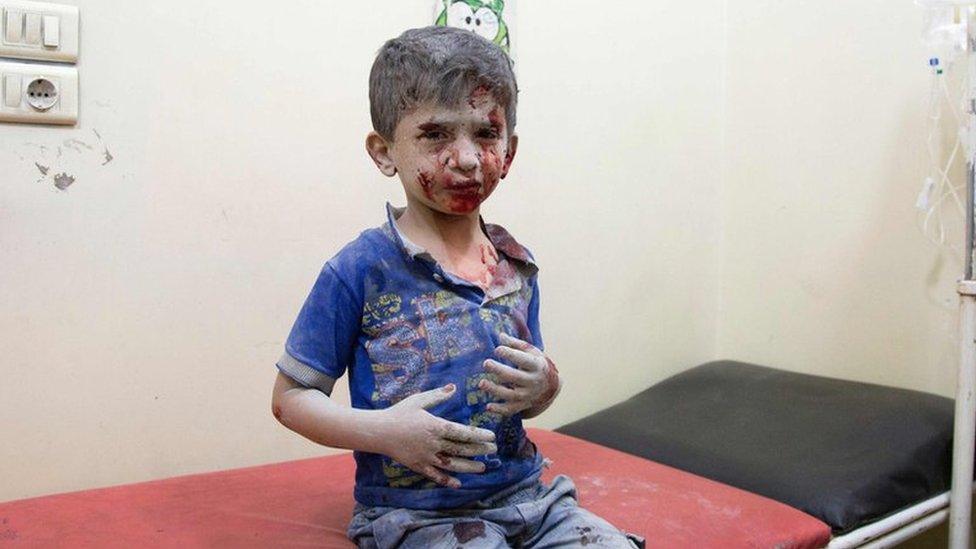
- Published31 May 2016
